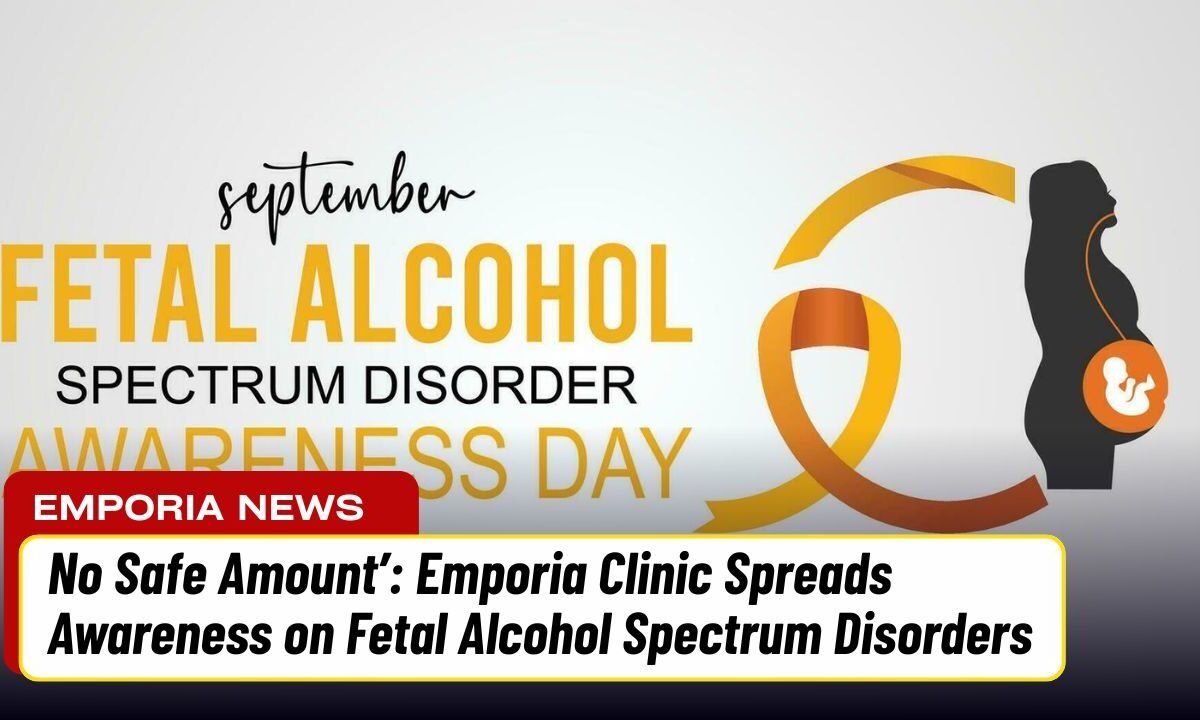Fetal Alcohol Spectrum Disorders (FASD) are lifelong conditions that result from prenatal alcohol exposure. These disorders significantly affect a child’s brain development, behavior, and learning abilities.
Experts emphasize that there is no safe stage of pregnancy for alcohol consumption, as even small amounts can cause harm.
Medical Recognition and Range of Conditions
According to Kayla Scott, therapist at CrossWinds and coordinator of the FASD Diagnostic Clinic in Emporia, FASD covers 22 medical categories, from full fetal alcohol syndrome to conditions without visible physical signs.
Since the brain is primarily impacted, symptoms can vary widely—children may face difficulties in social skills, behavior, and cognitive development, with no two cases looking the same.
Though FASD was only formally recognized in 1983, prevention and awareness efforts have grown rapidly. Healthcare providers now strongly warn that no amount of alcohol is safe during pregnancy.
Emporia’s Exclusive Diagnostic Clinic
Kansas families have access to a unique resource: the Emporia FASD Diagnostic Clinic, operated by CrossWinds Counseling and Wellness. It is the only multidisciplinary diagnostic team in Kansas.
While hospitals like Children’s Mercy can diagnose FASD, Emporia is the sole place where families meet with an entire team of professionals simultaneously.
This team includes:
- Physician
- Nurse
- Speech and language pathologist
- School psychology specialists
Together, they evaluate educational, medical, and developmental needs, offering well-rounded recommendations. Scott notes that this collaborative approach often helps families feel fully understood for the first time.
How the Clinic Operates
The clinic convenes once a month, usually offering two Friday morning appointments. Sessions last about 90 minutes and do not require a physician referral.
Families simply contact CrossWinds and speak with Scott directly, providing relevant documents such as IEPs, psychological evaluations, or medical records ahead of time.
This preparation ensures the team can give meaningful, personalized feedback during the appointment.
Importance of Prevention and Early Intervention
Scott highlights that prevention and early awareness remain top priorities, but early diagnosis and intervention are equally critical for long-term outcomes.
She encourages caregivers and educators to see behaviors through the lens of brain development rather than assuming willful disobedience.
Instead of pushing children to “try harder,” the clinic asks, “What strategies can we use to help this child thrive?” This mindset shift can transform how families and schools approach support.
Hope Through Support
Although FASD presents lifelong challenges, consistent intervention, tailored educational support, and caregiver understanding can make a remarkable difference.
Scott emphasizes that with the right tools, children can adapt and flourish, while families gain hope by understanding the reasons behind their child’s struggles.
Fetal Alcohol Spectrum Disorders remain a complex but manageable condition when addressed with the right strategies. The Emporia FASD Diagnostic Clinic stands out as a vital resource for Kansas families, offering both specialized diagnosis and guidance.
With ongoing awareness, prevention, and a focus on early intervention, children affected by FASD can lead more fulfilling lives, and caregivers can feel empowered to provide the support needed for long-term success.



